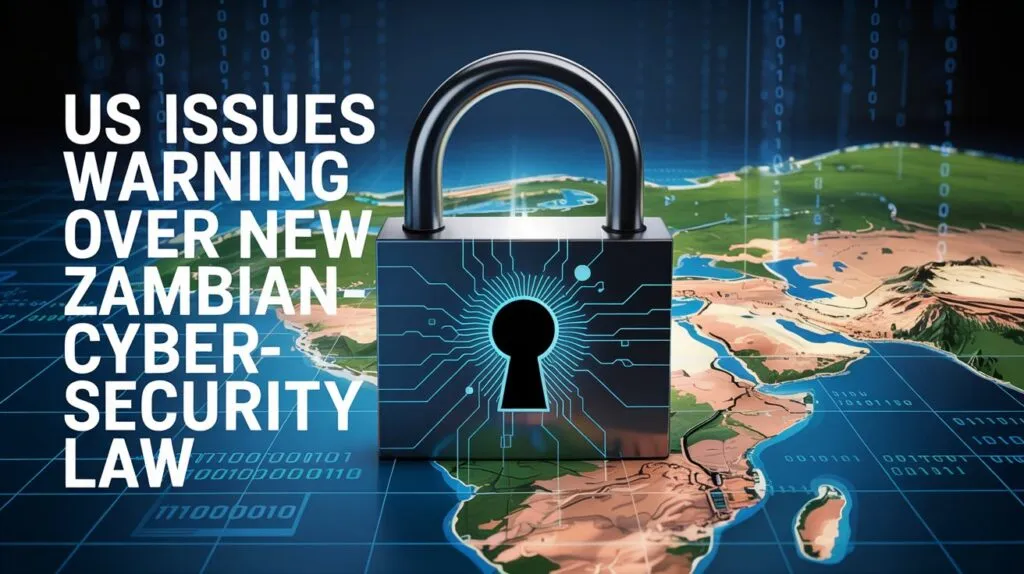Description
The United States has released strong warnings about Zambia’s recent cyber-security[Zambia’s New Cyber-Security Law] legislation because it threatens digital rights along with free speech protections. Understand the legal features of this new law which international entities find concerning.
Introduction
In a rare diplomatic move, theUnited States has raised alarms over Zambia’s newly enacted cyber-security law, warning that it could stifle free expression and target government critics. The legislation, officially called theCyber Security and Cyber Crimes Act, grants authorities sweeping powers to monitor online activity—but at what cost?
WithZambia positioning itself as a growing tech hub in Africa, this law has sparked fierce debate. Is it a necessary step to combat cybercrime, or a tool for political suppression? Here’s what you need to know about: click here
✔Key provisions of Zambia’s cyber law
✔Why the US and human rights groups are concerned
✔Potential impact on businesses and journalists
✔Global comparisons to similar laws
1. What Zambia’s New Cyber-Security Law Entails
- Expanded surveillance powers– Government access to private data without warrants
- Vague definitions of “cyber offenses”– The government runs the risk of penalizing both dissension and journalism.
- Heavy penalties for “false information”– Fines and imprisonment for online posts
- Mandatory data retention policies– ISPs and tech companies forced to store user data
2. Why the US Government Issued a Warning
- State Department’s official statement– Key concerns over human rights and democracy
- Comparisons to other restrictive cyber laws(e.g., Russia, China, Uganda)
- Potential impact on US-Zambia relations– Trade, investment, and tech partnerships
- Civil society backlash– Protests from Amnesty International and local activists

3. Risks to Free Speech & Digital Rights in Zambia
- Journalists and activists under threat– Case studies of recent arrests under similar laws
- Self-censorship fears– Will citizens avoid criticizing the government online?
- Impact on businesses– Could foreign investors pull out due to regulatory risks?
- Legal challenges ahead– Will courts strike down parts of the law?
4. Global Reactions & Diplomatic Fallout
- EU and UK responses– Are more Western nations likely to condemn the law?
- African Union’s stance– Balancing sovereignty vs. digital rights
- Tech companies’ dilemma– Will Google, Meta, and Twitter comply or resist?
- Zambia’s defense of the law– Government claims it’s only for fighting cybercrime
5. What’s Next? Possible Scenarios for 2025
- Will Zambia amend the law under pressure?
- Could sanctions or trade restrictions follow?
- How will this affect Zambia’s tech startup ecosystem?
- Lessons for other African nations considering similar laws
Conclusion: A Defining Moment for Zambia’s Digital Future
A warning from the United States about Zambia’s cyber-security regulations indicates a rising conflict which exists between national security needs and digital freedom protection. The cyber security regulations pursued by Zambian authorities approach a point that threatens democratic principles which negatively impacts their country’s democratic image. More
What to Watch in 2025:
🔍Legal challenges– Will courts limit the law’s reach?
🌍International pressure– Will allies push for reforms?
💡Tech industry response– Will VPNs and encryption tools surge in usage?
The digital law of Zambia will establish either dangerous legal standards or show exemplary methods to maintain security and protect individual rights. The world is watching.


